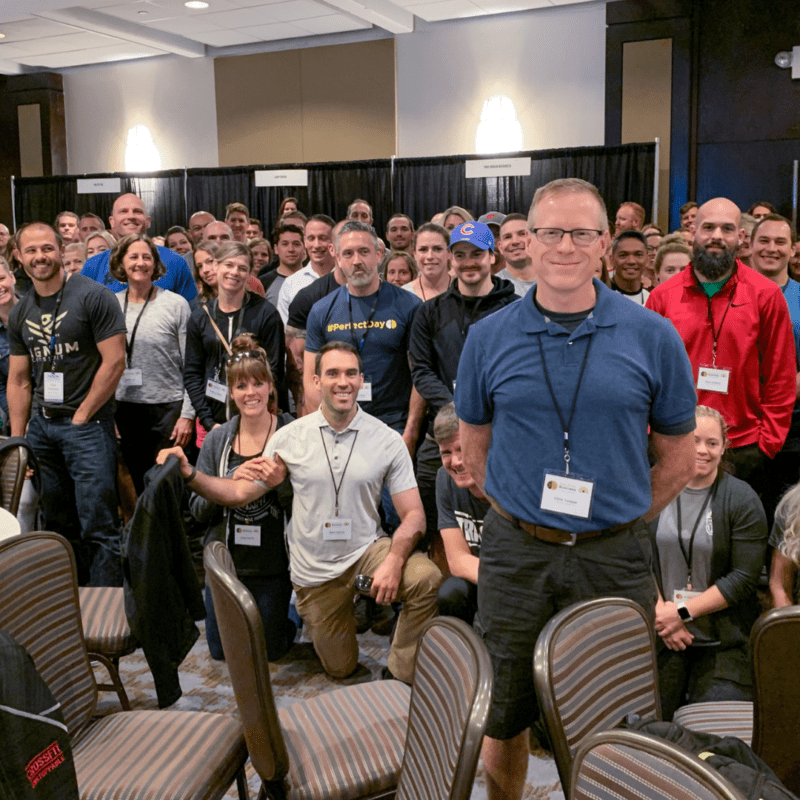Occam’s razor is a philosophical principle that means, “If there are two explanations for something, the simpler one is probably correct.”
My first staff handbook was 18 pages. I was proud of it. It solved most of the problems in my business; bought me the time to fix the next problems; and improved our clients’ experience at Catalyst.
Over time, the staff handbook grew: first to over 40 pages, then to almost 150. We had the entire MindBody Staff Guide in there. My idea was: “Answer every possible question in one document.” And there’s nothing wrong with that idea–until there is.
One day, a coach asked how to enter a new client in our billing software.
I said (triumphantly!!!): “It’s all in the staff playbook! Just follow the steps!”
She said, “I looked in there, and couldn’t find it.”
I said, “Did you try the search feature?”
She said, “How do I do that?”
So we spent the next half hour searching through the staff handbook. It would have been faster to just do it for her. And the next time there was a problem, that’s what I did. The staff handbook got shoved away, and we rarely used it. Staff reverted to asking me for help on every little detail–even though 90% of them were in the book!
Even worse, as our software usage grew from a spreadsheet to MindBody, then SocialWOD, then MailChimp, and on toward infinity, the book got thicker. That means it got harder to use. And on down the spiral we went…
The age-old rule of writing is “write drunk, edit sober.” That means it’s important to get everything out without interruption or roadblock. But then it’s equally important to cut out duplication and extra language. Perhaps it’s MORE important.
When I was hired by CrossFit Media to write monthly pieces for the Journal, Lisbeth Darsh gave me a book. It was called “On Writing Well” by William Zinsser. The book had nothing to do with writing and everything to do with editing. “Cut,” said Zinsser, “and then cut some more.”
In your business, this means:
Reduce your message to the least words possible to get your point across. When you’re not used to explaining things, you try to cover every base at once. Of course, But don’t bury people: keep all of the steps, but ask “How can I say this with fewer words?”
Try to say only one thing at a time. When you’re trying to explain a policy or process to your staff, resist the urge to show them how everything works together. You’ll just bury them. Don’t write an SOP that tries to solve two problems; write two SOPs.
Don’t use two systems when one will do. A new system doesn’t double the explanation necessary; it quadruples it. For example, if you use Google Drive for your client folders and DropBox for your staff media, you’ll actually need 4x the time and effort to train your staff. If you host your videos on Wistia, and then copy them to YouTube and IGTV, staff will have to be trained on each of the 3 platforms AND the transition process between them.
It’s tempting to use Asana, Slack, Zapier, MailChimp, ClickFunnels, and ten more pieces of software. They’re all awesome. But every new piece you add should replace one (or two) old pieces. Keep it simple.
Make updates. Your staff playbook is a living document. You’re going to change your software; change your systems; and change your staff. Revisit the playbook quarterly. Cut any information that no longer applies; update any instructions that need to be updated; and add checklists on any new procedures.
Finally: don’t leave any gaps. Despite all of my imploring to “cut, cut, cut”, you’re really better to include too much information than too little. Include every step on a checklist; don’t let a staff person guess what to do next. There’s no such thing as common sense. Don’t assume anyone knows what to do. The greatest gift you can give to your staff is clarity of purpose AND process.
I recently went back and rewrote “Two-Brain Business.” In fact, I compressed that book and “Two-Brain Business 2.0” into one, and I added articles from TwoBrain 2018 too. The final result was a shorter book than any of the above (around 150 pages instead of 250). But it’s FAR better, because it’s clearer.
When we redid our Incubator over the summer, we had a ton of new information and data to present. But the modules and instructions and videos that we provide for homework help are actually shorter. And they’re better–you can see it in the ROI our clients get.
More isn’t better. Better is better. And clearer is always better. Be clear.

